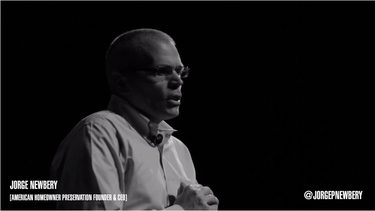"No one wants to do business with a loser," I concluded a decade ago as I tried to rebuild from my financial collapse. Once you've crashed and burned with one business, why would anybody agree to get in a new cockpit with you?
Small businesses fail every day. According to Bloomberg, about four out of five small businesses collapse within their first 18 months. From the cupcake store in the boutique district to software ventures, the carcasses of failed dreams pile up all around us.
Crazily enough, we go on. Tales abound of big businesses that are built on the rubble of earlier failures. One of the best known is Microsoft, the giant that Bill Gates and Paul Allen founded after their little traffic-engineering company, Traf-O-Data, ran into a dead end because there was no market for the paid product when states were churning out traffic data for free.
Gates and Allen were young guys then, undaunted by the setback, and went on to try again. Traf-O-Data, Paul Allen has said, "was seminal in preparing us to make Microsoft's first product a couple of years later."
They're not the only ones. Countless entrepreneurs have hit roadblocks in their path, only to later try other roads -- sometimes attempting several before finding one that leads to success.
It's that gap, the period after failure and before any other success -- if there is any -- that I explored at Failure:Lab in Pittsburgh in June. It's what Failure:Lab is all about: people tell the story of their darkest time, their most abysmal failure, without pivoting over to a happy ending.
And that's important, because at that moment of failure, and often for a long time after, there's no guarantee that success is waiting somewhere out ahead. You're just a failure.
In my Failure:Lab talk, I took the audience through the run-up to my life-altering failure. I started out as a small-time real investor, buying a four-apartment building near where I grew up in Southern California. Over a dozen years, I went bigger and bigger. Eventually, I acquired Woodland Meadows, an 1,100-unit apartment complex in Columbus, Ohio that was one of the nation's largest. The property was nicknamed Uzi Alley in acknowledgement of the gangs and violence that permeated the place.
I relished the challenge and set out to transform Woodland Meadows. I provided job training to residents, including gang members and drug dealers. They received paying jobs on Woodland Meadows' contractor crews, office team and community patrol. Former troublemakers transformed themselves into assets. Woodland Meadows did the same, metamorphosing into a thriving community. For a short period, Woodland Meadows was an extraordinary success.
Sadly, the largest Federally-declared disaster in Ohio history devastated the property just months after the turnaround was complete. An ice storm triggered an implausible series of events which climaxed in my catastrophic failure: over 18 months, I went from owning 4,000 apartment units and a net worth in the tens of millions to losing everything and owing over $26 million in debt I could not pay. I was crushed.
I emerged financially gutted with millions in judgments, wrecked credit, and my personal character assassinated: I was arrested, newspapers reported that felony charges were planned against me, and government officials labeled me "schemer" and Woodland Meadows "Public Enemy No. 1." These became the scarlet letter that I wore as I tried to re-start my career. I'd find great projects, generate interest from investors, and be ready for liftoff again when I'd get the phone call: "Tell us about Woodland Meadows," which was a way of saying, we checked your background and there's this huge black mark on it.
Ultimately it worked out. I found my way back into business, and run a thriving venture now. But I didn't know then, when a series of potential partners turned me down, how I'd ever come back from failure.
How many other entrepreneurs have been there? I'm not finding numbers, but I have a strong feeling that entrepreneurs, who by their very nature have a high tolerance for risk, often end up somewhere over the line, after one risk or another goes foul. Do they fall into depression, alcoholism, suicidal impulses? Surely some do.
Others go through stages of grief, first denying, then gradually accepting the situation and finding a way through it. While having a business die isn't on the same scale as having a loved one die, it engenders similar emotions. I thought you would always be here, what will I do without you, why did it have to be you and not somebody else?
Failure:Lab talks end at the failure. There's no "But then" moment, where the speaker describes a later triumph over previous adversity. It's just the adversity and nothing more.
In 1951, Alan Watts wrote The Wisdom of Insecurity, which describes how self-sufficiency often comes from not having something solid or reliable -- of being insecure in that sense. It's in having nothing, or having lost everything, that people find their way back to something. The same idea exists among recovered alcoholics and other substance abusers: addicts often won't begin to consider recovery until they've lost everything: family, home, job, friends.
Failure happens. We start businesses, marriages, marathons -- and they don't always last.
But the next one might. That's why we losers go on and try again.

